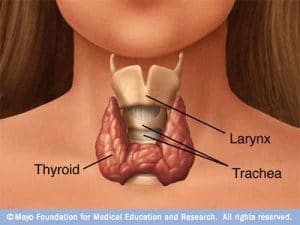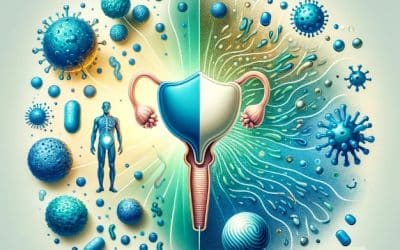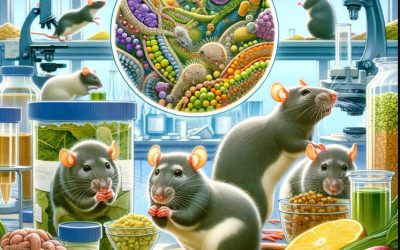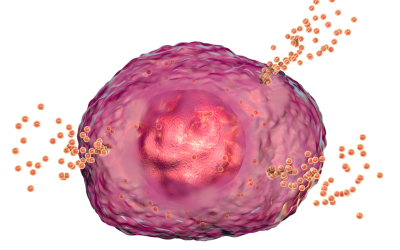Iodine is a controversial topic with regard to thyroid health, especially those with autoimmune thyroiditis. According to Wentz (2017), iodine needs to be processed by the thyroid gland, and when the thyroid is inflamed, the processing of iodine will likely produce more inflammation. A person may feel more energetic when first starting an iodine supplement, but lab tests will reveal a reduced functioning of the thyroid gland, as evidenced by rising TSH levels, thyroid antibodies and lowered levels of active thyroid hormone. This is why some people believe that iodized salt may have triggered an epidemic of hypothyroidism. “Today, iodine excess is recognized as a risk factor for developing autoimmune thyroid disease” (Wentz, 2017). This because when iodine is metabolized, it produces hydrogen peroxide, which is a free radical and can be damaging if it is not neutralized with antioxidants like selenium or glutathione. This oxidative damage can destroy the thyroid. Add in leaky gut, selenium deficiency, and a predisposition for autoimmunity and you have the perfect storm for Hashimoto’s. In fact, a study dated back in 1998 demonstrated that even a small amount of supplemental iodine (250mcg) can cause slight and significant changes in thyroid hormone function in predisposed individuals (Reinhardt et al., 1998).
According to Dr. Wentz, if it is suspected that someone has iodine-induced autoimmune thyroid disease, temporarily reducing iodine intake may be a good strategy at first. She recommends reducing the dose to less than 100mcg per day for about 1-3 months. After this elimination period and confirming improvements in thyroid markers, these individuals should not really consume more than 200mcg/day, even from natural supplements such as seaweed, kelp, spirulina and chlorella (Wentz, 2017). I also typically have my clients start eating 2-3 Brazil nuts per day. Attached is a document that lists the selenium content of foods. Sometimes, they can supplement with 200mcg of selenium per day in pill form. Also, making sure their levels of Vitamin D, Vitamin A and Zinc are adequate as well.
To learn more about healing form IC naturally, please visit our website: https://ichealer.com If you are looking for self healing, we recently launched our Self Healing IC Course featuring 10 hours of video designed to help you discover your root cause. Once you know your root cause, you can start your healing journey. To find out more information about our exciting new course, please find the information below:
Here is the link to preview the course: https://ichealer.com/online-course/
Here is the Podia Course Page: https://ichealer.podia.com/course
The first module is totally FREE. You have nothing to lose and everything to gain. For more insightful videos on these burning topics, simply subscribe to this page so you can be notified of up to date information.
Join us on Facebook https://www.facebook.com/IC-Healer-103255207780907/
Instagram https://www.instagram.com/ichealerofficial/
Twitter https://twitter.com/ic_healer
References
Reinhardt, W., Luster, M., Rudorff, K. H., Heckmann, C., Petrasch, S., Lederbogen, S., . . . Mann, K. (1998). Effect of small doses of iodine on thyroid function in patients with Hashimoto’s thyroiditis residing in an area of mild iodine deficiency. Eur J Endocrinol, 139(1), 23-28.
Wentz, I. (2017). Iodine and Hashimoto’s. Retrieved (2018, January 10) from https://thyroidpharmacist.com/articles/iodine-hashimotos/








